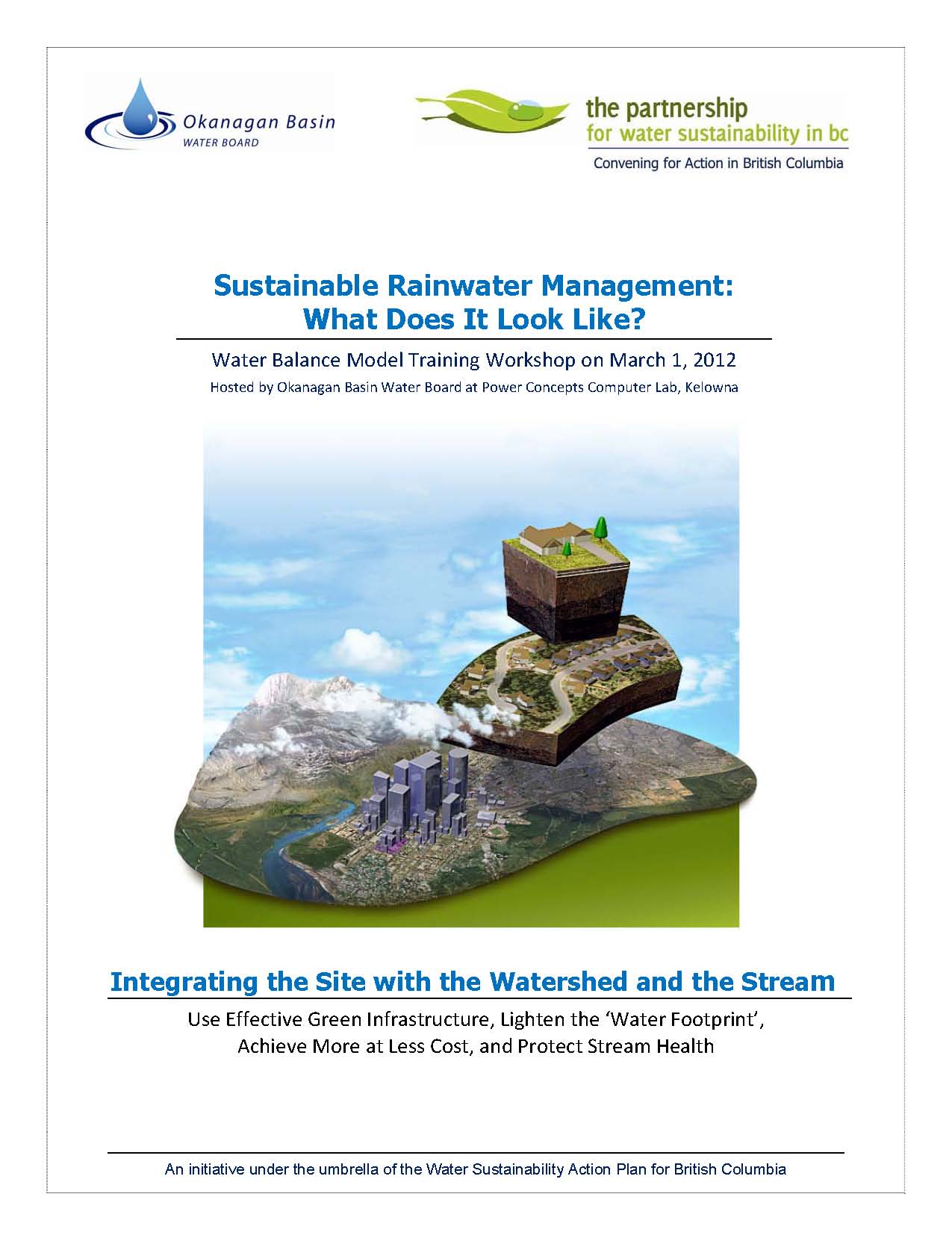Sustainable Rainwater Management: Okanagan Basin Water Board hosts first in 2012–2013 Series of “Water Balance Model Training Workshops”
Do you wonder how communities can reduce their ‘water footprint’ and protect stream health?
If climate change mitigation is about greenhouse gases, climate change adaptation is about water. Municipalities will face unprecedented pressure on their water resources and municipal infrastructure, and adaptation is key to building healthy, sustainable communities
 “A number of tools have been created to help municipalities adapt to climate change. The Okanagan Basin Water Board will be hosting a workshop to get these tools in the hands of the people that need them by bringing in the experts to answer questions and provide hands-on training,” announces Anna Warwick Sears, Executive Director.
“A number of tools have been created to help municipalities adapt to climate change. The Okanagan Basin Water Board will be hosting a workshop to get these tools in the hands of the people that need them by bringing in the experts to answer questions and provide hands-on training,” announces Anna Warwick Sears, Executive Director.
Tools include the Water Balance Model, Public Infrastructure Engineering Vulnerability Committee Protocol (PIEVC), Okanagan Irrigation Management Tool, and Streamlined Water Use Reporting Tool.
Quantify the Effectiveness of Green Infrastructure
The web-based Water Balance Model for British Columbia (WBM) is a scenario comparison tool. Launched by an inter-governmental partnership in 2003, the tool quantifies the effectiveness of green infrastructure in accomplishing two inter-connected goals: reduce a community’s ‘water footprint’; and protect stream health.
 “In 2011, we rebuilt the Water Balance Model on a new platform. It is quicker and cleaner to use; and it now has launch buttons at three scales of investigation; SITE, NEIGHBOURHOOD and WATERSHED. In conjunction with the re-build, the WBM Partnership is implementing an outreach, education and training program,” states Richard Boase, Partnership Co-Chair.
“In 2011, we rebuilt the Water Balance Model on a new platform. It is quicker and cleaner to use; and it now has launch buttons at three scales of investigation; SITE, NEIGHBOURHOOD and WATERSHED. In conjunction with the re-build, the WBM Partnership is implementing an outreach, education and training program,” states Richard Boase, Partnership Co-Chair.
“The Okanagan Basin Water Board (OBWB) has stepped forward to host the first WBM training workshop in the 2012-2013 Series. It will be held on March 1st in Kelowna as part of the OBWB Climate Adaptation Workshop program. In subsequent months, we will be announcing other WBM education and training opportunities in other regions. Training workshops will be held in computer lab settings.”
“The water balance methodology links rainfall to flows in the stream, and hence, protection of stream health. In conducting our training workshops, an educational outcome is that municipal engineers, planners and consultants will understand why and how to apply the water balance methodology to achieve targets.”
“This methodology should be a foundation block for those who are tasked with developing an Integrated Stormwater Management Plan (ISMP). Without this ‘how-to-do-it’ understanding, they will be challenged to recommend the actions necessary to protect or restore watershed function,” concludes Richard Boase.
The cost of registration for the March 1st workshop in Kelowna is $75. To register, click on http://www.obwb.ca/toolsworkshop. To learn more about what will be covered in the WBM training workshop, click on Sustainable Rainwater Management: What Does It Look Like?



